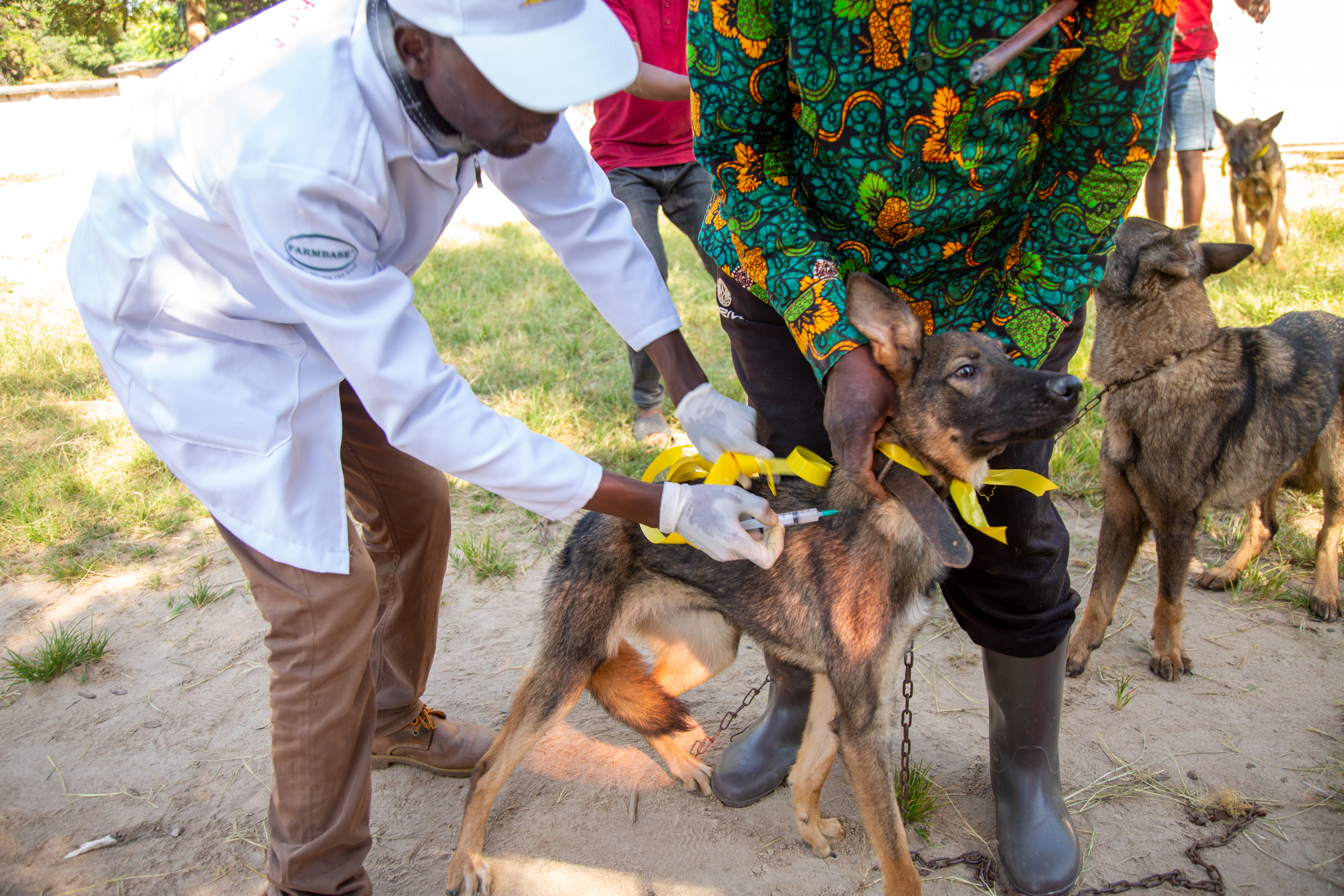
Principal Investigator: Dr. Ally Olotu
Project leader/ Coordinator: Dr. Omar Hassan
Project Administrator: -
Funding Partner: The University of Oxford
Start date: Feb. 26, 2025
End date: Dec. 31, 2026

Rabies Vaccine Regimen Development - "RAB003"
The Rabies Vaccine Regimen Development Project, or simply RAB003, implemented collaboratively by Ifakara Health Institute and the University of Oxford, seeks to improve access to rabies prevention in endemic areas.
About rabies
Rabies is a deadly viral disease affecting mammals, primarily transmitted through the bite of infected animals such as dogs and bats. Without vaccination, the disease typically incubates for 2–3 months but can vary from 5 days to several years. Post-exposure prophylaxis (PEP), when administered promptly alongside proper wound care, is highly effective. Globally, rabies causes around 59,000 deaths annually, leading to 3.7 million disability-adjusted life years (DALYs) lost and an economic burden of approximately US$8.6 billion. In Tanzania alone, rabies causes about 1,500 deaths each year, with children under 15 years being most affected. Access to and completion of PEP, however, remain inconsistent.
Current rabies prevention strategies include pre-exposure prophylaxis (PrEP) for high-risk individuals and PEP after exposure, often combined with rabies immune globulin (RIG) administration. However, the cost of PrEP and limited access to emergency PEP highlight the need for more practical solutions.
Project rationale
The project aims to simplify and improve access to rabies prevention by developing a single-visit PEP regimen through the coadministration of ChAdOx2 RabG (an adenovirus-vectored vaccine) and an inactivated rabies vaccine (IRV), offering a cost-effective and easier-to-complete alternative.
ChAdOx2 RabG has undergone a successful first-in-human clinical trial (RAB001) in the UK between 2019 and 2021 without safety concerns, while another ChAdOx2-vectored vaccine trial also confirmed its safety and efficacy. A Phase Ib trial (RAB002) is currently ongoing at the Ifakara Health Institute (IHI) in Tanzania, involving 99 participants, including adults and children.
RAB003 objectives
The primary objective of RAB003 is to assess the safety and tolerability of different rabies vaccine regimens in healthy adults (18–45 years) and children (2–6 years) in a rabies-endemic country. Secondary objectives include evaluating the immunogenicity of the single-visit intramuscular (IM) coadministration of ChAdOx2 RabG and IRV compared to the traditional three-visit intradermal (ID) IRV regimen. The study is designed as an open-label, head-to-head, partially randomized trial, involving 40 healthy participants and will be conducted at Ifakara's Bagamoyo Clinical Trial Unit (BCTU) located in Bagamoyo, Tanzania.
